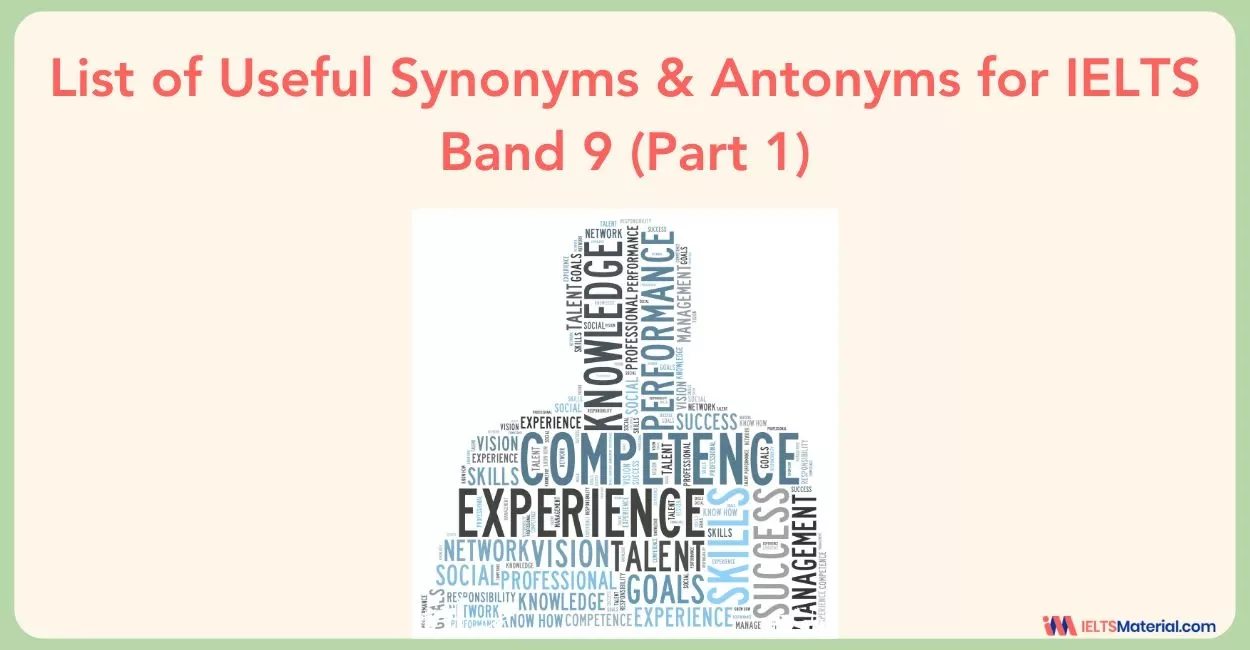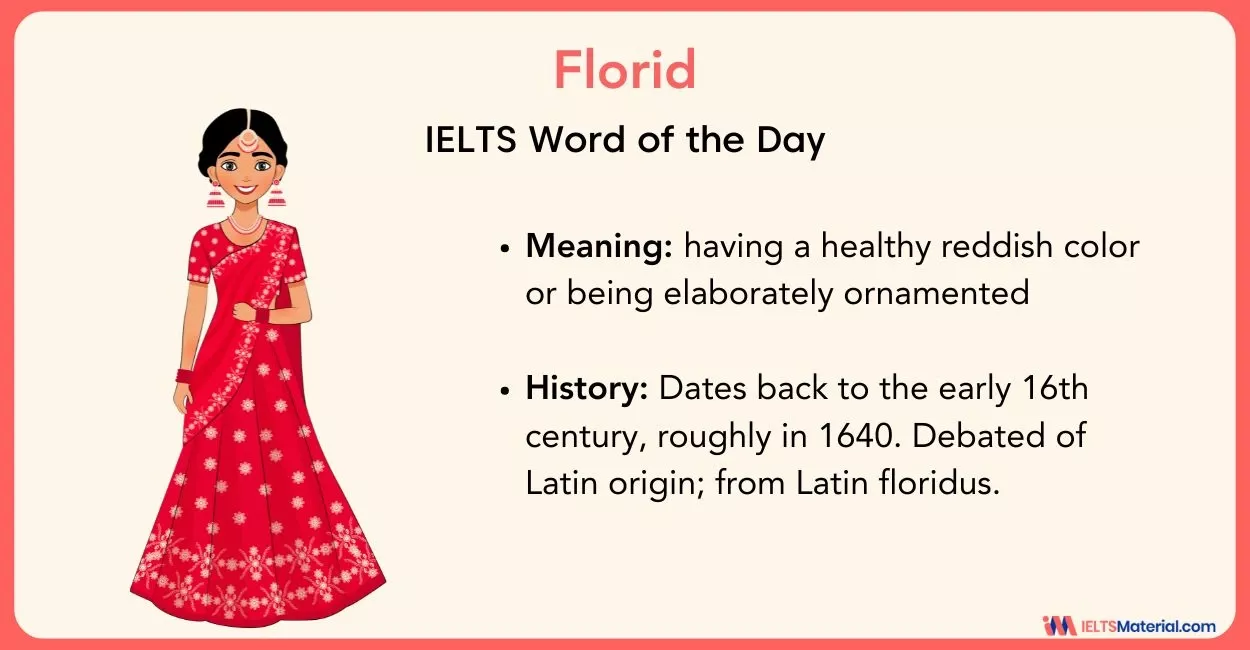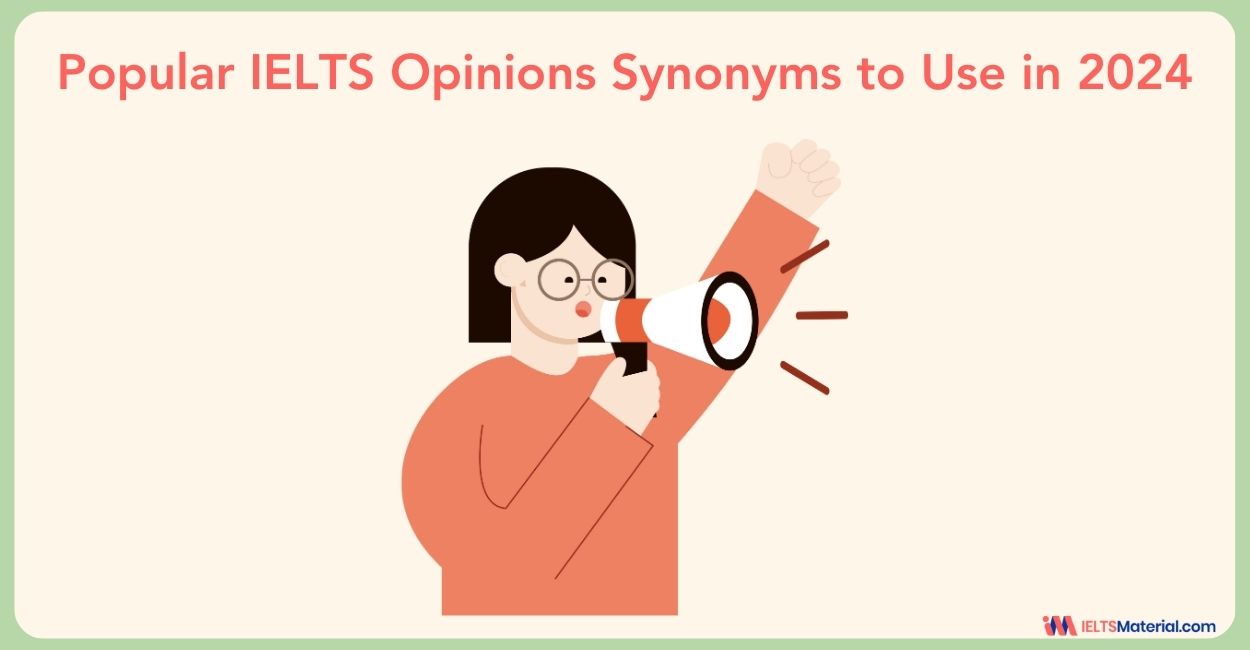IELTS Speaking Vocabulary - 30 Academic Words That Will Help You Score IELTS Band 9 (Part 1)
5 min read
Updated On
-
Copy link
Check out the list of 30 academic words and improve your IELTS Speaking vocabulary for band 9. Here, you will learn the meaning of these words, how to use them in the proper context and 3 top tips to maximize your vocabulary upgrade!
Table of Contents

Limited-Time Offer : Access a FREE 10-Day IELTS Study Plan!
Academic words play a crucial role in IELTS Writing and Speaking, as they help demonstrate a higher level of English proficiency. It is crucial that you update your IELTS vocabulary with the IELTS band 9 vocabulary list of 30 academic words. However, candidates often get confused about which words are the most important.
In this blog, you will find an expert-curated list of IELTS Speaking vocabulary band 9 words as well as tips on how to use them and impress your examiner for a top band score!
IELTS Band 9 Vocabulary - List of 30 Academic Words
The IELTS band 9 vocabulary list below might help you improve your IELTS Speaking and Writing exam score and even help you get a high IELTS band score!
|
Word/Phrase |
Meaning |
Example Sentence |
|---|---|---|
|
Abstract (adj) |
Based on general ideas or principles rather than specific examples or real events. |
Human beings are the only creatures capable of abstract thought. |
|
Aggregate (v) |
(Usually Passive) To put together different items, amounts, etc., into a single group or total. |
The scores were aggregated with the first round totals to decide the winner. |
|
Cooperative (adj) |
Willing to cooperate. |
He was doing his best to be cooperative. |
|
Discrimination (n) |
The practice of treating somebody or a particular group in society less fairly than others. |
Government figures suggest that ethnic minorities face discrimination looking for jobs. |
|
Diversity (n) |
A range of different people, things, or ideas. |
Cultural diversity is a central feature of modern British society. |
|
Exceed (v) |
To be more than a particular number or amount. |
Working hours must not exceed 42 hours a week. |
|
Immigrant (n) |
Someone who enters another country to live there permanently. |
Large numbers of illegal immigrants have found their way into the country. |
|
Inevitable (adj) |
Certain to happen and impossible to avoid. |
A rise in the interest rates seems inevitable. |
|
Phenomenon (n) |
Something that happens or exists in society, science, or nature, especially something that is studied because it is difficult to understand. |
The idea that we may be able to live forever is not a new phenomenon. |
|
Paradox (n) |
A situation that seems strange because it involves two ideas or qualities that are very different. |
It’s a paradox that in such a rich country there can be so much poverty. |
|
Intrusion (n) |
When someone does something or something happens that affects your private life or activities in an unwanted way. |
This is a governmental intrusion on the freedom of the press. |
|
Involuntary (adj) |
Happening without the person concerned wanting it to. |
The distinction between voluntary and involuntary unemployment is often blurred. |
|
Itinerary (n) |
A plan of a journey, including the route and the places that you visit. |
Visits to four different countries are included in your itinerary. |
|
Lucid (adj) |
Clearly expressed; easy to understand. |
There is only one lucid explanation for this problem. |
|
Lucrative (adj) |
Producing a large amount of money; making a large profit. |
Many of the engineers left the service for more lucrative jobs abroad. |
|
Ludicrous (adj) |
Unreasonable; something that you cannot take seriously. |
It was ludicrous to think that the plan might succeed. |
|
Jurisdiction (n) |
The authority that an official organization has to make legal decisions about somebody/something. |
The British courts have universal jurisdiction over torture cases. |
|
Lenient (adj) |
Not as strict as expected when punishing somebody or ensuring rules are obeyed. |
School examiners say that marking has become more lenient in recent years. |
|
Loathe (v) |
To dislike somebody/something very much. |
Many of the people fear and loathe the new government. |
|
Obsess (v) |
To completely fill your mind so that you cannot think of anything else, in a way that is not normal. |
Modern people are becoming obsessed with material wealth. |
|
Metropolitan (adj) |
Connected with a large or capital city. |
A metropolitan area of South Germany is developing rapidly. |
|
Mimic (v) |
To look or behave like something else. |
The robot was programmed to mimic a series of human movements. |
|
Miniature (adj) |
Very small; much smaller than usual. |
Some parents expect their children to behave like miniature adults. |
|
Moderation (n) |
The quality of being reasonable and not extreme. |
Moderation in eating and drinking is the way to stay healthy. |
|
Monarchy (n) |
A country that is ruled by a king or a queen. |
There are several constitutional monarchies in Europe. |
|
Mirage (n) |
A hope or wish that you cannot make happen because it is not realistic. |
His idea of love was a mirage. |
|
Mischievous (adj) |
Enjoying playing tricks and annoying people. |
A mischievous boy. |
|
Miser (n) |
A person who loves money and hates spending it. |
Mike was a stereotypical miser; he spent nothing he could save, neither giving to charity nor enjoying his wealth. |
|
Lackadaisical (adj) |
Not showing enough care or enthusiasm. |
He has a lackadaisical approach to finding a job. |
|
Legitimate (adj) |
Allowed and acceptable according to the law. |
The legitimate government was reinstated after the uprising. |
Need more IELTS Speaking vocabulary band 9 words with practice exercises like this?
Check out Vocabulary for IELTS!
Top 3 Tricks to Improve Your IELTS Speaking Vocabulary
Let’s check out the top 3 tricks to improve your word power and learn some latest IELTS Speaking vocabulary to boost your score:
-
Learn Topic-Specific Vocabulary
IELTS Speaking tends to cover common themes including work, entertainment, education, environment, fashion, technology, etc. Try to make an advanced vocabulary words for IELTS+PDF specifically to these topics, or get resources related to vocabulary for IELTS before you begin your preparations.
-
Contextualize Words with Storytelling
Just learning the words is not enough if you won’t be using them anywhere. Instead, try to use them as you tell people stories or while having a conversation to make them memorable. Moreover, use the words you have learnt in sentences and try to relate them to your personal experiences during your mock speaking sessions.
-
Use Idioms (Cautiously)
Using proper idioms can make your language sound natural and fluent, but you should also make sure that they are appropriate and not forced.
Ready to crack your IELTS Speaking test in the 1st go? Book a FREE Demo!
To sum up, IELTS Speaking vocabulary band 9 words enhance formality, precision, and clarity, ultimately boosting the score. While in Writing, they help present ideas in a structured and persuasive manner, making arguments more compelling, in IELTS Speaking, this sophisticated vocabulary can make responses sound more refined. Therefore, learn what is lexical resource in IELTS and master the IELTS band 9 vocabulary list not only to enhance communication but also significantly improve IELTS scores.
Useful Links:
- Top 11 IELTS Vocabulary Books
- English Pronunciation in Use (IELTS-based) (Intermediate Edition) by Mark Hancock
- Useful Idioms for IELTS Speaking to Score Band 8.0+
- 50 Recent IELTS Speaking Topics for Part 2 and 3 for IELTS 2025
- Mind Maps for Vocabulary: A Visual Way to Improve Significantly
- IELTS Vocabulary Words List for Band 8 or 9
- IELTS Academic High-frequency Vocabulary and Words
Frequently Asked Questions
What are some Band 9 IELTS Speaking vocabulary words for common topics?
How can I improve my IELTS Speaking vocabulary to reach Band 9?
Which linking words and phrases should I use for a Band 9 in IELTS Speaking?
How can I sound more fluent while using Band 9 vocabulary in IELTS Speaking?

Start Preparing for IELTS: Get Your 10-Day Study Plan Today!
Improve your Vocabulary from our Vocabulary Articles

Kasturika Samanta

Kasturika Samanta

Prity Mallick

Kasturika Samanta
Recent Articles

Nitika Gupt

Nehasri Ravishenbagam

Nehasri Ravishenbagam





Post your Comments
1 Comment